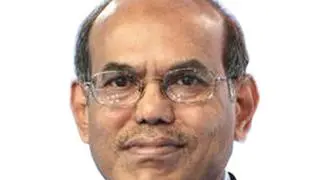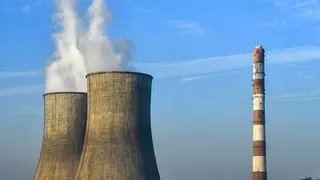The NITI Aayog will take a final view on the proposed national agriculture export policy — which aims to double the country’s exports of farm products and farmers’ income by 2022 — before it is placed before the Cabinet for approval.
“The NITI Aayog is working on its suggestions on the draft agriculture policy. Officials from the Commerce Ministry will hold detailed discussions with their counterparts in NITI Aayog on the policy soon and finalise it,” an official told BusinessLine .
Recently, a presentation on the proposed measures was given to the Prime Minister's Office (PMO) by the Commerce Department officials.
“The PMO had no objections to the proposed measures. Details on certain measures were sought, which were provided,” the official said.
With the general elections scheduled next year, it is important for the government to ensure that proposals related to the farming community and agriculture produce do not result in any controversy.
Building India’s image as a reliable supplier in the global market by removing export restrictions such as imposition of a minimum export price or export ban is one of the key suggestion of the policy.
“The PMO was assured that the proposal to do away with export ban would not result in shortage of essential commodities such as rice or wheat as such items would be exempt,” the official said.
The essential commodities that could continue to be regulated through export restrictions will be identified by the relevant stakeholders and ministries.
“If the NITI Aayog has some specific suggestions in the area of export restrictions, it would be added to the draft,” the official said.
Agriculture exports could double to $60 billion by 2022 from the present $30 billion once the proposed measures are implemented, the draft policy has envisaged. It would also contribute in meeting the target of doubling farmers’ income by 2022 although the draft doesn’t mention how much in absolute terms that would be.
The draft policy does not propose direct incentives to farm exporters as these are banned under the World Trade Organization rules for countries with an average per capita income of more that $1,000. It has several incentives lined up that are compatible with the multilateral norms.
There are proposals to promote marketing, build export infrastructure and develop a number of export clusters, which would require funding from the Finance Ministry.








Comments
Comments have to be in English, and in full sentences. They cannot be abusive or personal. Please abide by our community guidelines for posting your comments.
We have migrated to a new commenting platform. If you are already a registered user of TheHindu Businessline and logged in, you may continue to engage with our articles. If you do not have an account please register and login to post comments. Users can access their older comments by logging into their accounts on Vuukle.